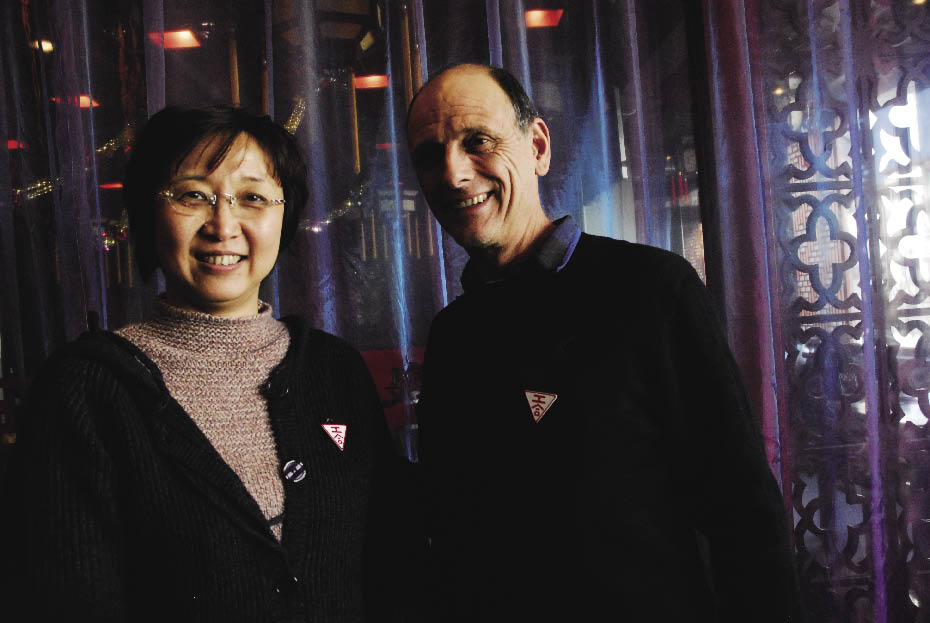| Gung Ho
By staff reporter PENELOPE COLVILLE
The term Gung Ho, Chinese for "working and working together," entered the English language as a description of wholehearted dedication to a meaningful cause. Meant to conjure up a picture of virtuous, collective industriousness, the term in fact refers to the brainchild of what we'd call adventurers, romantic idealists, even "rugged individualists." If you ever wondered where it came from, look to a "small-p" political, socio-economic movement that played a unique role in China during the Second World War.
Perhaps one of the longest standing examples of East-meets-West in China, and one with exceptionally glamorous Chinese and Western founders, is the organization whose nickname is the same as the slogan. Books have been written and movies made from the lives of foreign founders and pre-cursors of Gung Ho, or ICCIC – the International Committee for the Promotion of Chinese Industrial Cooperatives.
 |
|
Much to be happy about: Dr. Yuan Peng and Michael Crook, co-chairs of the International Committee for Chinese Industrial Cooperatives.Seth Grossman |
New Zealand technician and inventor Rewi Alley and British economist George Hogg were heroes for other reasons in the war-torn 30s and 40s, but were also core Gung Ho founders. They were matched by Chinese patriots like Chen Hansheng, played by Chao Yung Fat (opposite Jonathan Rhys-Meyers as George Hogg) in the Children of Huang Shi – a liberally interpreted version of an actual historic rescue of Chinese orphans, packaged for the silver screen. Chen was Gung Ho's first Secretary General in fact. American journalists Edgar and Helen Snow were both early organizers. Soong Ching Ling, founder of this magazine, served as the official founder of ICCIC. Its leadership, from its very inception in 1937, has been a tightly woven braid of Chinese and foreign visionaries working a model of cooperation, idealism and utility that has spanned both cultures and decades.
|
